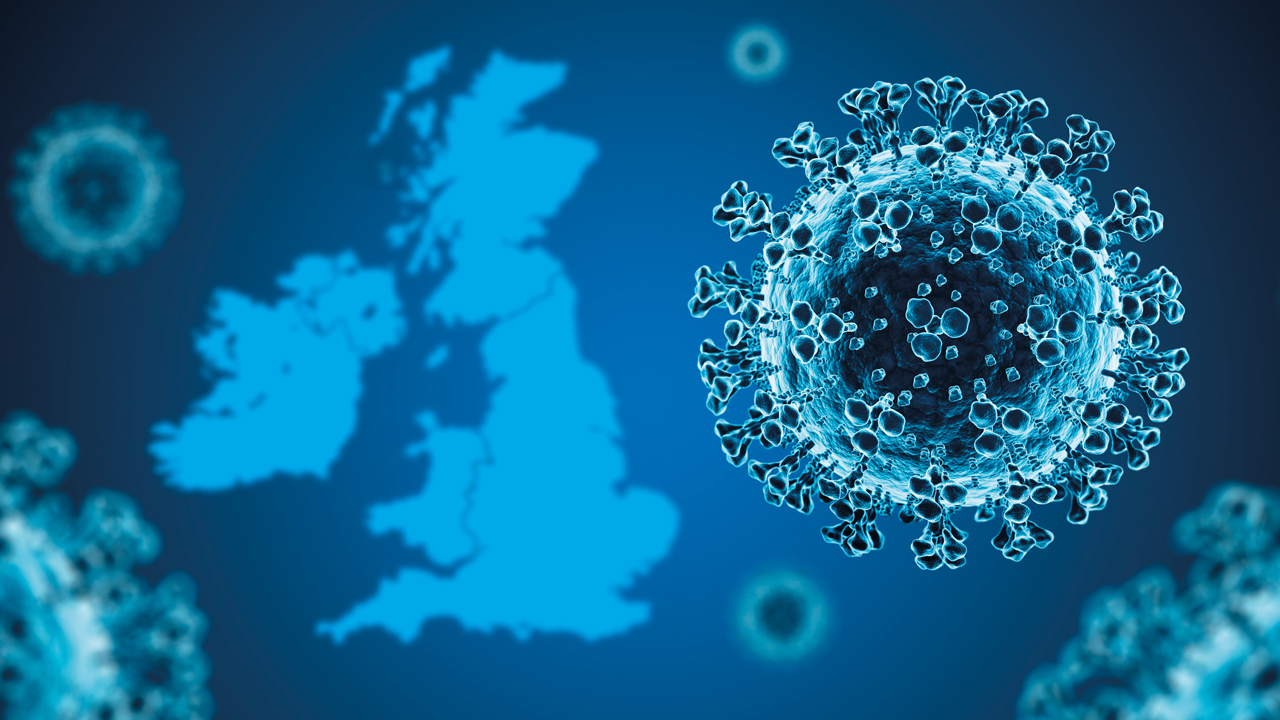In In-depth
Follow this topic
Bookmark
Record learning outcomes
The Covid-19 global pandemic that caused the world as we know it to shut down in March 2020 reminded us that lifethreatening diseases know no boundaries, and require a One Health approach – recognising that the health of humans, animals, plants, and the wider environment are closely linked and interdependent – to manage. Three years on, as Covid has moved toward endemicity, new disease challenges continue to arise and – propelled by reasons including climate change – the UK is not immune to these risks. Here’s what could be coming over the horizon…
Cryptosporidiosis
Cryptosporidium is a parasite found in lakes, streams and rivers, untreated drinking water and sometimes in swimming pools, that causes an infection called cryptosporidiosis which affects humans and farm animals. Anyone can get cryptosporidiosis but it is most common in children aged between one and five years, and people who care for or work with children. It can be caught because of poor hand hygiene practices after contact with the faeces of an infected person or animal, or by swimming in or drinking contaminated water. Since August 2023 the UK has seen a nationwide increase in cases of cryptosporidiosis, with 2,032 laboratory confirmed cases in England, 163 in Wales, 127 in Scotland and 89 in Northern Ireland from mid-August to early October. The most common symptoms of cryptosporidiosis are watery diarrhoea, vomiting, stomach pains, and fever which can last from a couple of days up to three or four weeks. For most people the illness is unpleasant and self-limiting, but it can be serious in people who are immunocompromised, with Rosie Gathercole – a research associate at Quell Therapeutics who spent time working at the national Cryptosporidium Reference Unit (CRU) at Public Health Wales in Swansea – saying: “Quite often how well you recover from the illness depends on how healthy you were to begin with”. While there is no specific treatment for cryptosporidiosis, it is important to drink plenty of fluids as diarrhoea or vomiting can lead to dehydration and the loss of minerals from the body. Pharmacy teams can recommend rehydration solutions and, where necessary, the appropriate painkiller for the patient.
Brucellosis
Brucellosis is a bacterial infection caused by the Brucella canis (or B. canis) bacteria, and can be transmitted from dogs to humans. Globally it is estimated that between three million and 12.5 million people a year contract brucellosis from animals, almost exclusively livestock, and while the UK is currently free of brucellosis in livestock and wildlife it has recently been found in dogs. According to Government data, pre-2020 the UK saw three diagnoses of B. canis in dogs, but 97 diagnoses in 2023 (to June 2023) – with most cases in or linked to dogs imported from Eastern Europe. Human-to-human transmission of B. canis is extremely rare, but dog breeders and owners of imported dogs may be at a higher risk of infection if they are exposed to an infected animal’s reproductive or birthing products. In humans, the time from getting infected with B. canis to developing symptoms can vary from weeks to years, with symptoms including fever, loss of appetite and weight loss, sweating, headaches, fatigue, and back and joint pain. Most people make a full recovery with antibiotics, but if left untreated B. canis can lead to complications such as inflammation of the lining of the heart (endocarditis) or meningitis. Pharmacy teams should advise anyone who has had contact with an infected dog (particularly their reproductive or birthing products), or a dog that has tested positive for B. canis, and is feeling ill to inform their GP or call NHS 111.
Rabies
And speaking of dogs, at time of writing NHS England has announced a shortage of rabies vaccines in the UK. Rabies is a vaccinepreventable viral disease spread mostly by contact with saliva from any rabiesinfected wild or domestic animal via a bite, scratch, lick to an open wound or with the eyes, mouth or nose (mucous membranes). While we think of rabies as being a disease that is not present in the UK, bats can also carry rabies, meaning there is a small risk even on these shores. In humans, rabies is almost always fatal once symptoms develop, so health advice for travellers to countries where rabies is common is to plan ahead for a pre-exposure vaccination schedule before they go, and avoid contact with animals and seek prompt medical attention if in contact with saliva from a rabies-infected wild or domestic animal.
Conditions to watch
At the end of November the UK Health Security Agency (UKHSA) confirmed the first case of a new strain of swine flu in the UK. The A(H1N2)v infection was detected in a routine flu screening test at a GP surgery in North Yorkshire in a person who had mild flu-like symptoms. It is not thought to cause any more severe disease than other common types of influenza, but pig-owners are required to report any signs of swine flu in their herds to their local vet. Meanwhile, the World Health Organization (WHO) warned travellers to Zambia of an “unprecedented outbreak” of anthrax outbreak in humans, with 684 suspected cases, including four deaths, as of 20 November 2023. Anthrax is a zoonotic disease caused by Bacillus anthracis bacteria that typically affects ruminants (such as cows, sheep, and goats) and produce extremely potent toxins, causing a high lethality rate in the pulmonary form. People exposed may receive prophylactic treatment and antibiotics are effective. WHO advises travellers to anthrax endemic countries to avoid handling and consuming “meat from animals that died suddenly, meat obtained via emergency slaughter, and meat of uncertain origin”.
“The pandemic has given previously eradicated diseases such as polio and measles the opportunity to come surging back in many countries.”
Polio and measles
The pandemic has given previously eradicated diseases such as polio and measles the opportunity to come surging back in many countries because it disrupted childhood vaccination programs around the world. Polio is caused by a virus that spreads easily from person to person through contact with the faeces of an infected person, or from contaminated food or water. Most people with polio don’t have any symptoms and won’t know they’re infected, but for up to one in 100 people, the polio virus causes temporary or permanent paralysis, which can be life threatening. Polio was eradicated in Europe in 2003 and the chance of getting polio in the UK is extremely low because most people are fully vaccinated. There have been no confirmed cases of paralysis due to polio caught in the UK since 1984, but in the summer of 2023 some poliovirus was found in sewage from London. The chance of getting ill from polio is higher for people who are not fully vaccinated, so it's important to make sure that patients know if they, and their children, are up to date with their vaccines. In the UK the polio vaccine is part of the free NHS routine childhood vaccination schedule and is given to children at:
- Eight, 12 and 16 weeks old as part of the 6-in-1 vaccine
- Three years, four months old as part of the 4-in-1 (DTaP/IPV) pre-school booster
- 14 years old as part of the 3-in-1 (Td/IPV) teenage booster. People need all five of these vaccinations to be fully vaccinated against polio but it is possible to have a polio vaccination at any point.
Measles
London also saw a jump in measles cases in 2023, with 85 confirmed cases between 1 January and 30 June 2023 leading the UK Health Security Agency (UKHSA) to warn that the city could see a measles outbreak with tens of thousands of cases unless MMR vaccination rates improve. Measles usually starts with cold-like symptoms, followed by a rash a few days later, and some people may also get small spots in their mouth. It can make children seriously unwell with one in five needing a hospital visit, while one in 15 children develop serious complications from a measles infection, which can include meningitis and blindness.There is no treatment for measles so vaccination is the best protection – with the MMR vaccine protecting against measles, mumps and rubella (German measles). The MMR vaccine is offered free to all children in the UK, with two doses giving lifelong protection against measles, mumps, and rubella. Pharmacy teams can encourage customers who are unsure if they or their children are up to date with their vaccination schedule to check with their GP.
Climate change risks
The UKHSA’s recently released Health Effects of Climate Change in the UK (HECC) report highlights the important intersections between climate change and health and includes the most up-to-date evidence on risks to health from climate change in the UK.
According to the report there has been “a significant escalation in these health risks” since the last evidence summary in 2012, with the potential for our warming climate to “expand the range and survival of ticks and biting mosquitoes that transmit vector-borne diseases”. A warming climate, coupled with global travel and trade, is also increasing the risk of new species of biting mosquitoes that transmit diseases establishing in the UK. Worryingly, the report says eggs of the nonnative mosquito species Aedes albopictus, which can transmit dengue fever, chikungunya and zika, have already been found in the UK. UKHSA says modelling suggests London is currently suitable for their survival, with broader areas at risk in the coming decades. If this sounds like too much bad news all at once it can at least enable pharmacy teams to remind customers to take care, check their vaccinations record, and educate themselves on new disease risks and how to mitigate them.


